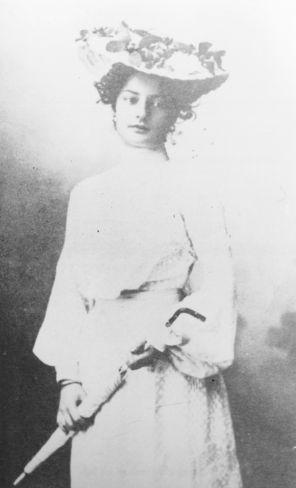
The austere world of post-World War II Yugoslavia was not the most welcoming environment for cosmopolitan spirits – and even less so for former members of the aristocracy. But in Ljubljana, a respected woman poet did bring a bit of worldly flair – and some aristocratic eccentricity – to that often gray era.
In 1885, Lili Novy was born -- as Elisabeth Von Haumeder – in the Austrian provincial town of Graz. In a time when nationalism was on the rise, her aristocratic family was resolutely multiethnic; her father was German, while her mother was Slovenian. Even though the household spoke German, Novy insisted on learning Slovenian as well.
The family moved to Ljubljana when Novy was a child, but the Haumeders were equally at home throughout the Austro-Hungarian Empire, and Novy spent much of her time at her aunt's residence in Vienna, familiar with both the city's aristocratic milieu and the intellectual life of its cafes.
Despite her privileged upbringing, Novy was rebellious as a child. She was expelled from her prestigious private school, and decided to write poetry. After marrying an army officer whom she had met at a party and giving birth to two daughters, Novy and her family lived in Bohemia and the port city of Fiume.
After World War I, Novy settled in Slovenia, where she eventually became a literary star. This was an era in which female poets were rare, and Novy initially wrote poetry only for herself. After her husband urged her to share her work with the public, however, she decided to publish her first poems in a German-language magazine. She continued to write poetry throughout the 1920s, but also became known for translating the works of some of the best Slovenian writers and poets into German. She established strong bonds in Slovenian literary circles, and in the 1930s, she began to write poetry in Slovenian for the first time. For quite some time, Novy's German heritage remained a source of distrust among the cultural elite, but her powerful, meditative poems about life and death – often with erotic elements -- and masterful translations finally caused her to be accepted as a Slovenian author. Her honesty and boldness contributed to her popularity among Slovenia's best-known literary personalities, and is now considered one of the most preeminent Slovenian poets of all time.
Novy's personal life was less glamorous however. Her husband was diagnosed with syphilis, and spent his last years in an institution for retired Austro-Hungarian soldiers in Czechoslovakia. In order to supplement her income from poetry and translations, Novy even briefly ran a dairy.
Novy had a difficult time coming to terms with post-World War II Communist Yugoslavia. Resentful of the collectivism and the limitations imposed on artistic expression, she helped to found The League of Beautiful Laziness, intended to unite freethinking authors in opposition to Socialist Realism and the restrictive cultural atmosphere of the era. Despite her political disagreements, Novy stayed in Slovenia and continued to write poetry and translate various works into German and Slovenian, taking advantage of her multiethnic and multilingual upbringing. Her grandchildren, refugees from war-torn Germany, inspired Novy to write poetry and prose for children. For years, she was also an interesting sight on the streets of Ljubljana – a colorful woman of aristocratic origins and a lively, bohemian style amidst the grayness of socialist austerity. Her restless personality earned her the nickname “nora grofna” – “The Crazy Countess.”
Novy died of cancer in 1958. She was 72 years old.


































































